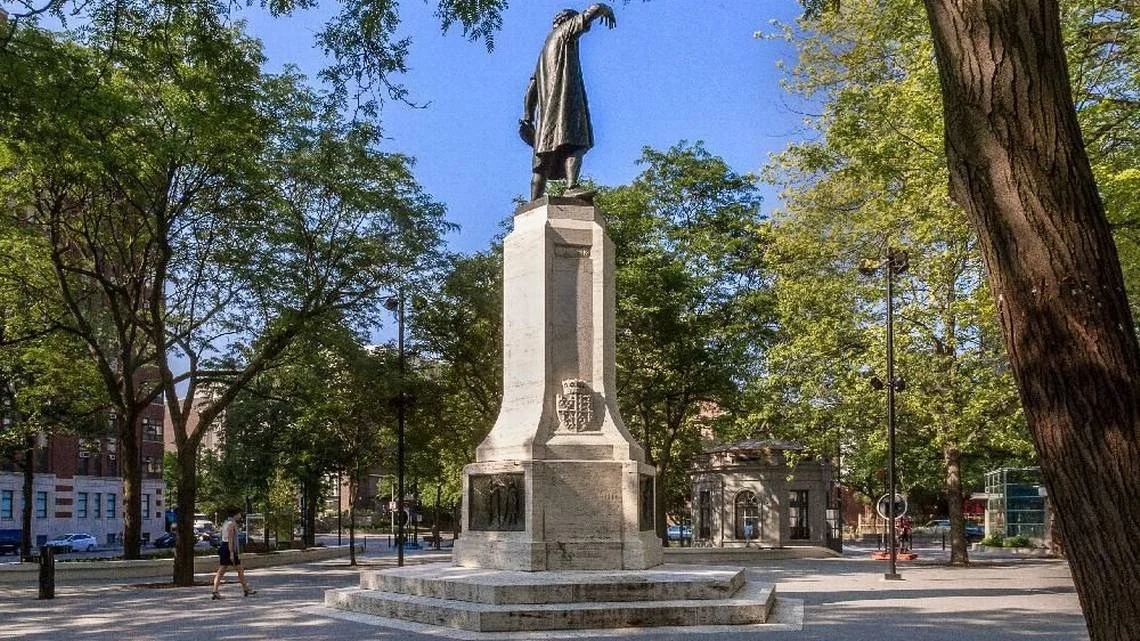WHAT HAPPENED?
From approximately 2000 until 2023, women and children who frequent the Cabot Square area of Montreal were targeted by a serial sexual predator. Most of these women and children were Indigenous, many were survival sex workers, and most used drugs and alcohol.
During this period of time (2020 - 2023), four Inuk women were all found dead by hanging, while another was found dead by hanging in 2024. Four out of 5 of these women were known to associate with the same serial predator/rapist, who we will refer to as the Cabot Square Serial Predator. Three of these deaths were ruled a suicide, and no investigation took place. These women’s families and friends insist that they were not suicidal. Only one of these deaths was deemed to be violent, and an investigation was opened only because of extensive community pressure. Additionally, one other Inuit sex worker was found murdered in 2005 after a savage beating, and another Inuit sex worker has been missing since 2019. Could these deaths also be connected?
Between approximately 2000 to 2023, there were an estimated 40 victims of rape, sexualized violence, and torture from the Cabot Square Serial Predator. Most victims are unable to come forward out of fear for their lives and due to the arbitrary nature of the criminal legal system. These women are living in a constant state of survival and do not have the adequate support to navigate a racist, colonial, and patriarchal legal system.
Additionally, the Cabot Square Serial Predator was known to spend time in Longueuil. In 2010, there was a serial rapist targeting women in the Brossard/Longueuil area that remains unsolved. We question if these cases could be tied to the Cabot Square Serial Predator?
The Cabot Square Serial Predator was arrested in 2023 and is serving a sentence due to sexual assault charges. He will be released in early 2026.
Outside of the cases of women found hanging in and around Cabot Square, there have been dozens of other Indigenous women who have been found dead around Cabot Square, with these deaths labelled as overdoses or suicides. Despite dozens of young Indigenous women dying suspiciously and mysteriously, there has been no investigation.
The violence in Cabot Square did not end when the Cabot Square Serial Predator was arrested. The criminal legal system and police would like to sell us a copoganda version that through this arrest, the women and children of Cabot Square are somehow safer.
This is not true, because none of the structures that allowed the Cabot Square Serial Predator to harm so many vulnerable people en masse have changed. Women, children, and gender diverse people in Cabot Square still do not have access to women and gender-diverse only harm reduction spaces. There is still no structured anti-violence program to support unhoused women and gender diverse people and victims of violence in the Cabot Square area. Women still complain of dirty cops in Cabot Square. No intervention programs for people engaging in harm exist. No reliable pathways to housing or recovery.
There is also a tension here: we envision a world without police, see the systemic failings of police in this case, and also, we need to SPVM to act, and to do so quickly. We hope that fellow abolitionists will join us in this project of holding police accountable, finding justice for these women and their families, and building a city and world where Indigenous women and sex workers are not seen as disposable, and where people who engage in harm can be supported and held accountable before they escalate to the most extreme forms of violence.
This situation, and the length of time that the Cabot Square Serial Predator was able to remain active with little to no consequences or intervention did set a precedent. The failure of police, youth protection, governmental, and surrounding community organizations to intervene sent a clear message. To the victims, it said: your lives do not matter. Violence is to be expected, no one is coming to help you. To people who engage in violence and harm in Cabot Square, it said: you can harm vulnerable women and children, particularly if they are Indigenous or sex workers, and you will get away with it.
No more.
